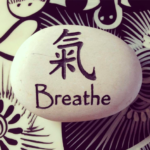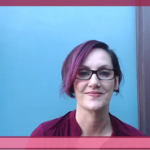“My coronavirus anxiety is off the charts! My family has fallen apart and no one agrees on conditions for gatherings.”
“I fear I won’t see my in-laws because my mother won’t babysit anymore if I visit their home.”
“What can I do when my aunt refuses to leave her house?”
A snapshot of common concerns of my therapy clients since late March. Tragically, it appears COVID-19 isn’t going away anytime soon. The virus remains a mystery and misinformation runs rampant—which puts psychotherapists in a unique position as we cannot practice outside our professional scope. Yet, session after session, we find ourselves counseling clients on how to contain their COVID-related worries, depression, and health fears.
If only “four ways to do this” or “six steps to avoid that” existed to help manage the collective anxiety. COVID-19 is overwhelming on many levels, largely due to the complexities of human behavior. While wearing a face mask, social distancing, and staying indoors make sense to many, others will stare you dead in the eye and cry “hoax.”
Studies show that people are more apt to comply with a health-related message if it’s a one-time behavior (for example, getting a vaccine), as opposed to repeated behaviors done over time (for example, exercising). Because it takes less effort to do something once versus multiple times, people are likely to be more compliant when a single behavior is recommended. (Source: Psychol Bull. 2015 Nov; 141(6): 1178–1204.)
Which brings us to the blame game. Whether you label it politics, economics, ignorance, conspiracy theory, reckless youth, stubborn boomers, toxic masculinity, rallies, protests, riots, self-righteousness, denial, low frustration-tolerance, a lack of patience or compassion or big-picture thinking, two facts remain: You cannot reason anyone into reality, nor can you shame someone into compliance. This creates added layers of stress within families, many of whom have not seen one another in months.
And while I don’t have specific answers to all the psychological virus struggles, I can offer the following as a template for understanding others’ actions.
COVID-19 concern: “What if I never see my family again?”
Workaround: Watch out for polarizing and catastrophic language such as “always,” “never,” “everyone,” “no one,” etc. Additionally, setting a time frame for the future can help. For example, focus on the next six months and not eternity.
COVID-19 concern: “My family has disintegrated.”
Workaround: Understand the dynamics of fractious family relationships. COVID-19 is not solely responsible when families favor conflict and division. If the foundation wasn’t stable at the onset of 2020, the familial structure will likely not function in a healthy manner at present.
COVID-19 concern: “Why are we here so wp themes many months later? What is wrong with people?!”
Workaround: Take the following with a caveat, as conjecture, as an educated guess, at best. It is possible that people cannot imagine themselves to be so sick as to require drastic medical intervention. After all, the majority of the population has never experienced respiratory failure, including intubation and placement on a ventilator. And some who get the virus recover at home and appear to be fine. Then there’s the flip side, where the medical community commonly likens aggressive cases to the virus eating the lungs alive. If someone cannot see themselves in someone else’s narrative, denial and false hope may be the go-to defense mechanisms. Human bias means we see what we want to see and believe what we want to believe
So what’s a stressed-out, socially-responsible person to do?
- Do you. Take care of yourself and be responsible for your reactions to stressful family conversations.
- Offers strategies to reduce potential harms during family get-togethers. For example, schedule a gathering 14 days after your sister’s cross-country flight. Have a digital thermometer ready to take temperatures before entering your home and set up outdoor seating. Place hand sanitizer at entrance and exit points and designate a single bathroom for guests. This strategy meets people where they are and respects self-determination. Expect some people will decline invitations because they’re offended, and let it go.
- Develop boundaries around how much time you spend trying to convert the unconverted.
- Refrain from judging others’ actions (a Herculean task, no doubt). Know that Americans are weary and depleted. Some mask refusers and non-social distancers render decisions based on what hasn’t worked up to now, despite our collective sacrifices.
- Summon compassion and curiosity, and focus on the long game.
Human behavior and family dynamics are nothing if not messy and complicated. While questions remain about how we got here, the truth is we’re here. For how long depends on people’s actions. It’s that easy or that hard.
Copyright 2020 Linda Esposito, LCSW. All Rights Reserved. No part of this article may be reproduced or utilized in any form or by any means without permission in writing from the author.
This article originally appeared on PsychologyToday.com








